Memorable Moments: Australian Open

Memorable Moments: Australian Open
'I'm tired, sure'
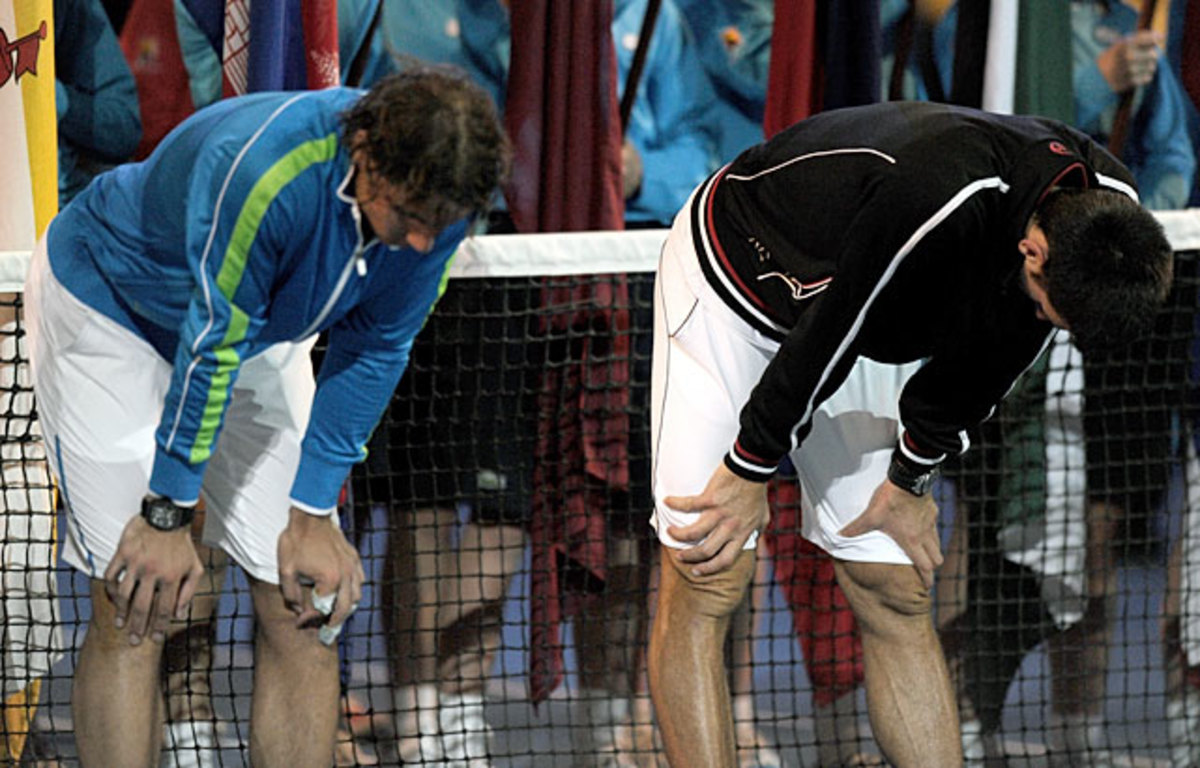
In a record-breaking final, Novak Djokovic and Rafael Nadal slugged it out for five hours, 53 minutes -- the longest Grand Slam final in the Open Era. Djokovic prevailed 5-7, 6-4, 6-2, 6-7 (5), 7-5 over Nadal, extending his winning streak in finals against the Spaniard to seven. It was the third consecutive major these two met in the final, another Open Era first. This was the first of their 30 career matchups that has gone to five sets. Both have reason to be tired, as Nadal admitted after the match.
Azarenka Claims No. 1
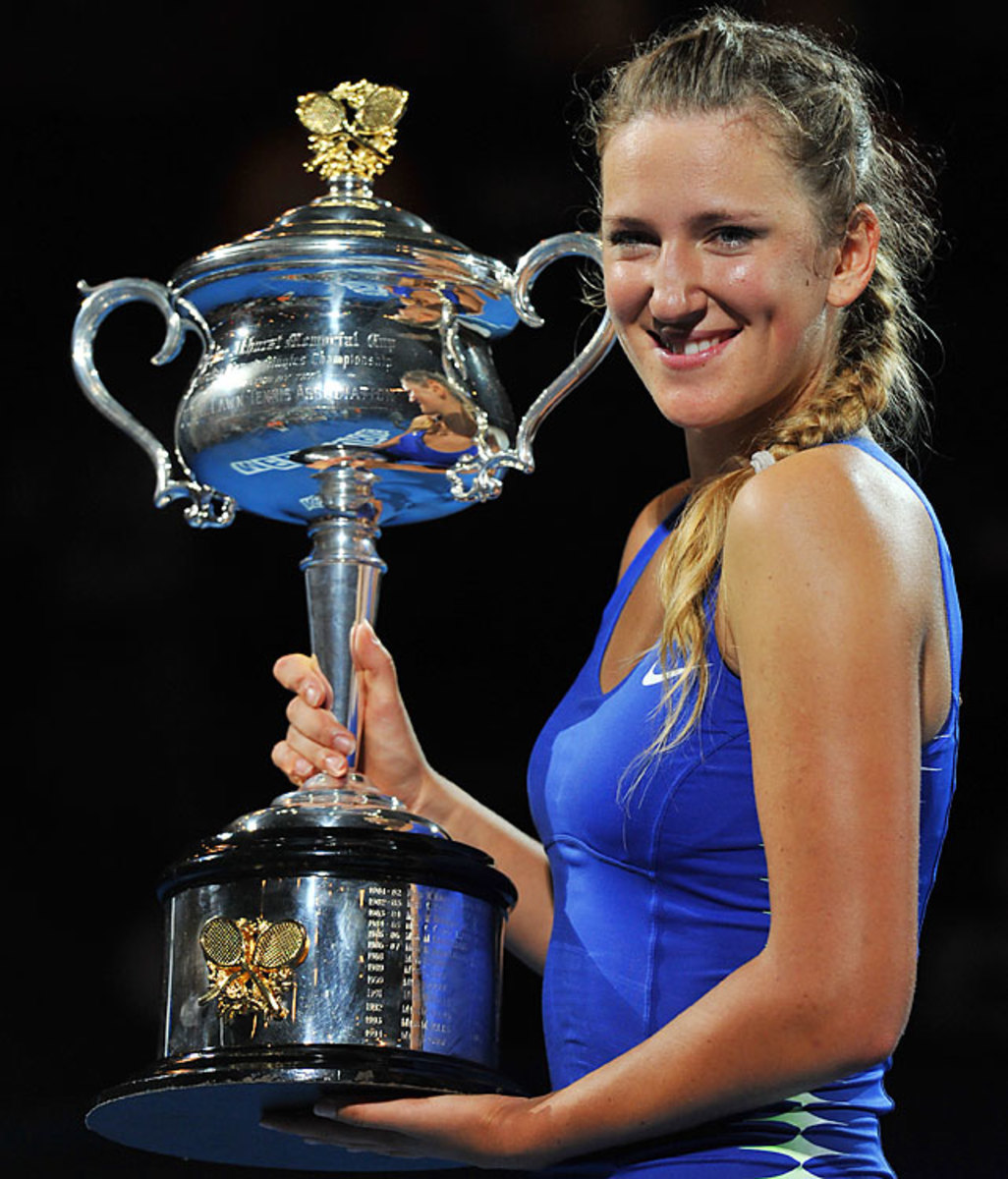
Victoria Azarenka not only won her first major title, but also took over the No. 1 ranking for the first time. The Belarusian throttled Maria Sharapova 6-3, 6-0 to end Caroline Wozniacki's reign atop the WTA. Azarenka, 22, became the fourth straight first-time women's major winner, joining Li Na (French), Petra Kvitova (Wimbledon) and Sam Stosur (U.S.). It's the first time the holders of all four majors are first-time winners.
'Brava, Francesca!'
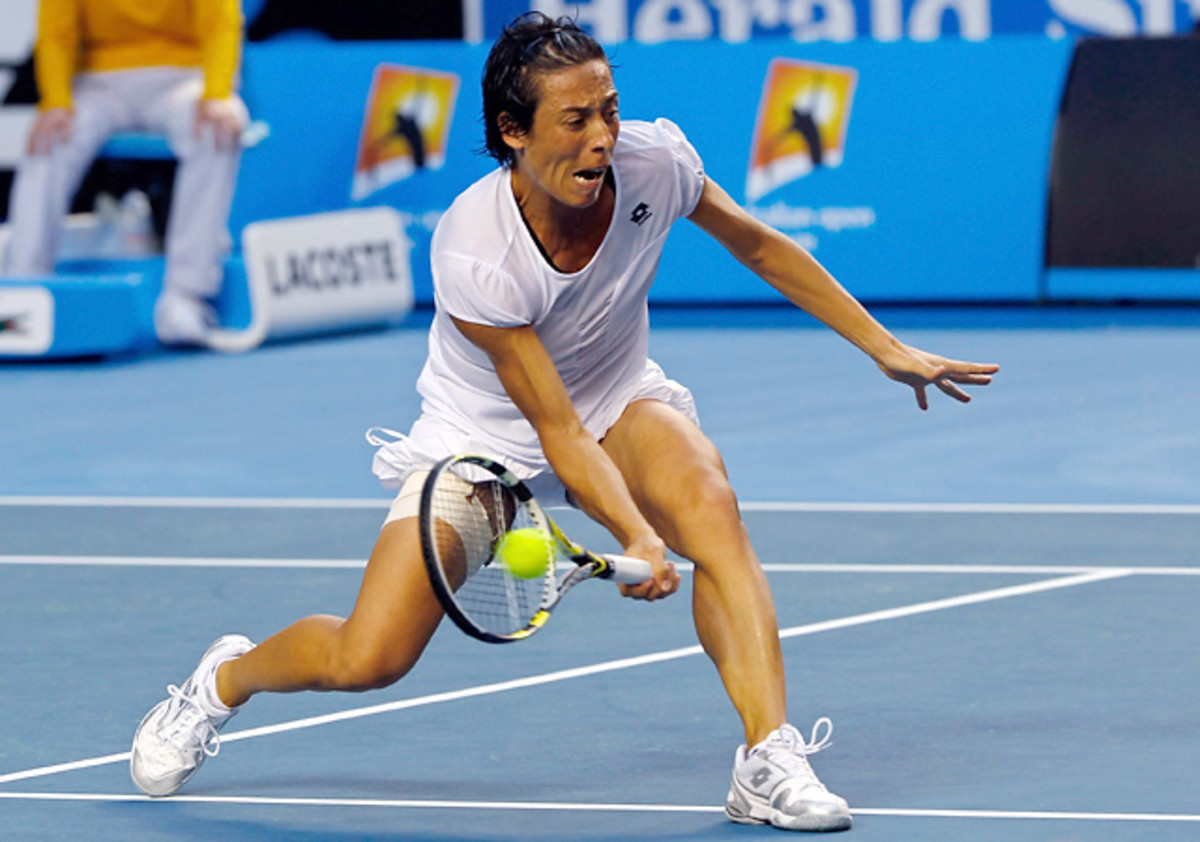
The clock finally stopped at 4 hours, 44 minutes, when Francesca Schiavone defeated Svetlana Kuznetsova 6-4, 1-6, 16-14 in a fourth-round thriller that set the record for longest women's Grand Slam match in the Open era. Schiavone saved six match points in a three-hour final set before pushing a forehand volley to settle the match.
'God, it's killing me'
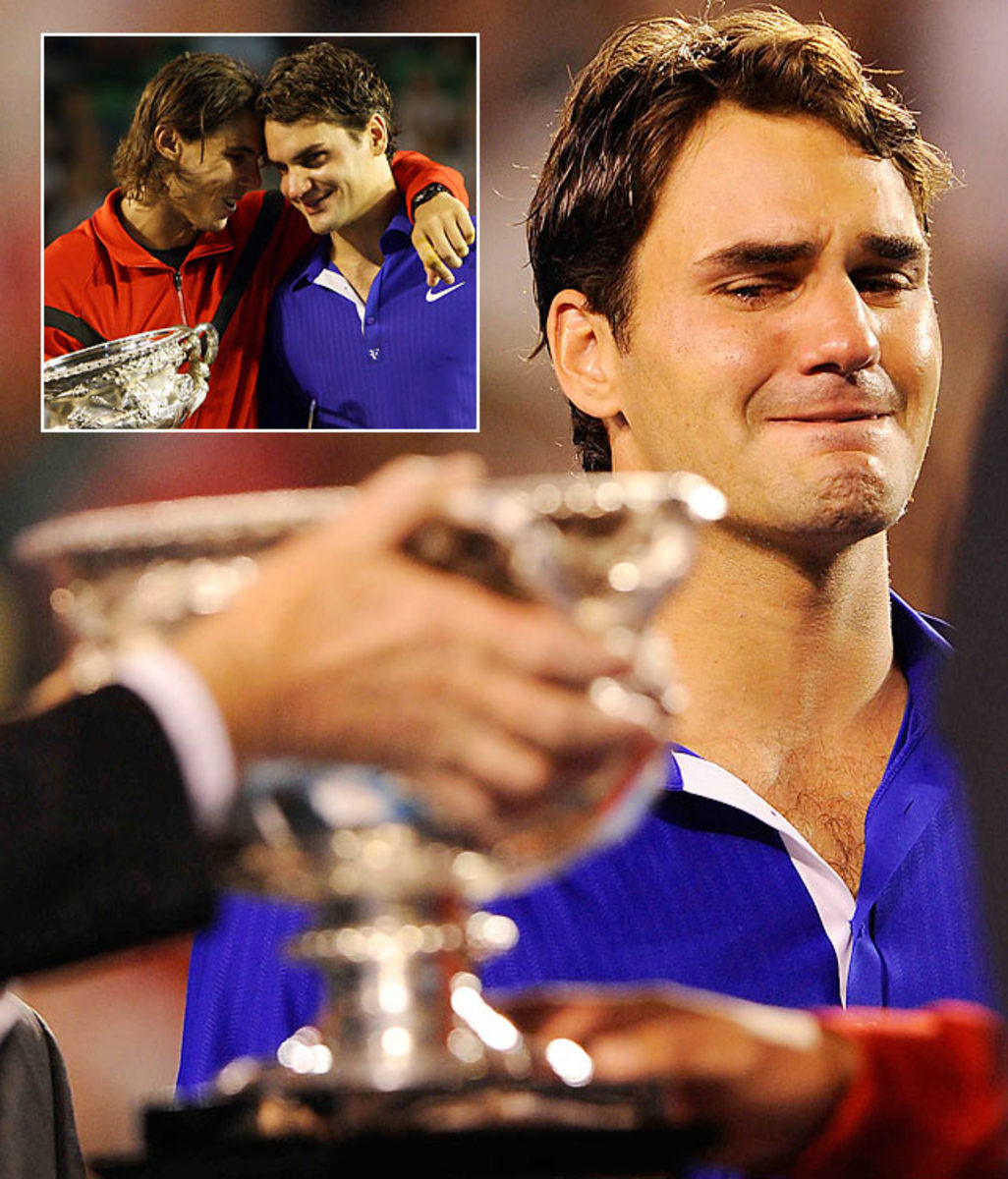
Roger Federer was overcome with emotion after losing to Rafael Nadal 7-5, 3-6, 7-6 (3), 3-6, 6-2 in the final, and it poured out as he accepted the runner-up trophy. Federer had been aiming to match Pete Sampras' record of 14 career Grand Slam titles. Instead, he lost his third straight Grand Slam final against Nadal, and many signaled it the end of the Federer era. The Swiss bounced back, however, winning both the French Open and Wimbledon to surpass Sampras.
Djokovic's major breakthrough
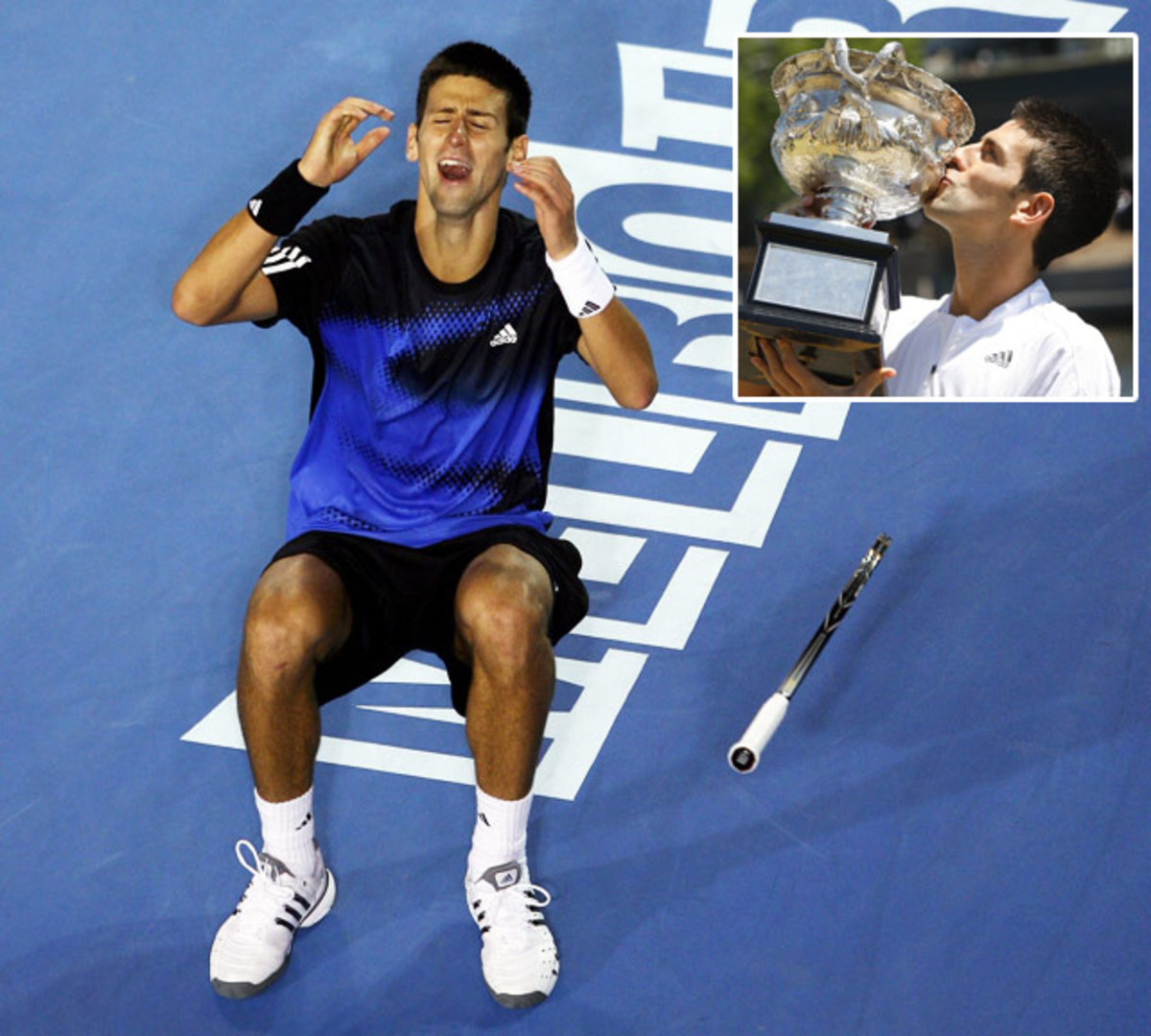
Novak Djokovic won his first Grand Slam title in Melbourne in 2008, beating Jo-Wilfried Tsonga 4-6, 6-4, 6-3, 7-6 (2) in the final. Djokovic had to get past Roger Federer in the semis, which he did in straight sets for just his second career win against the then World No. 1.
Safin-Federer epic semifinal
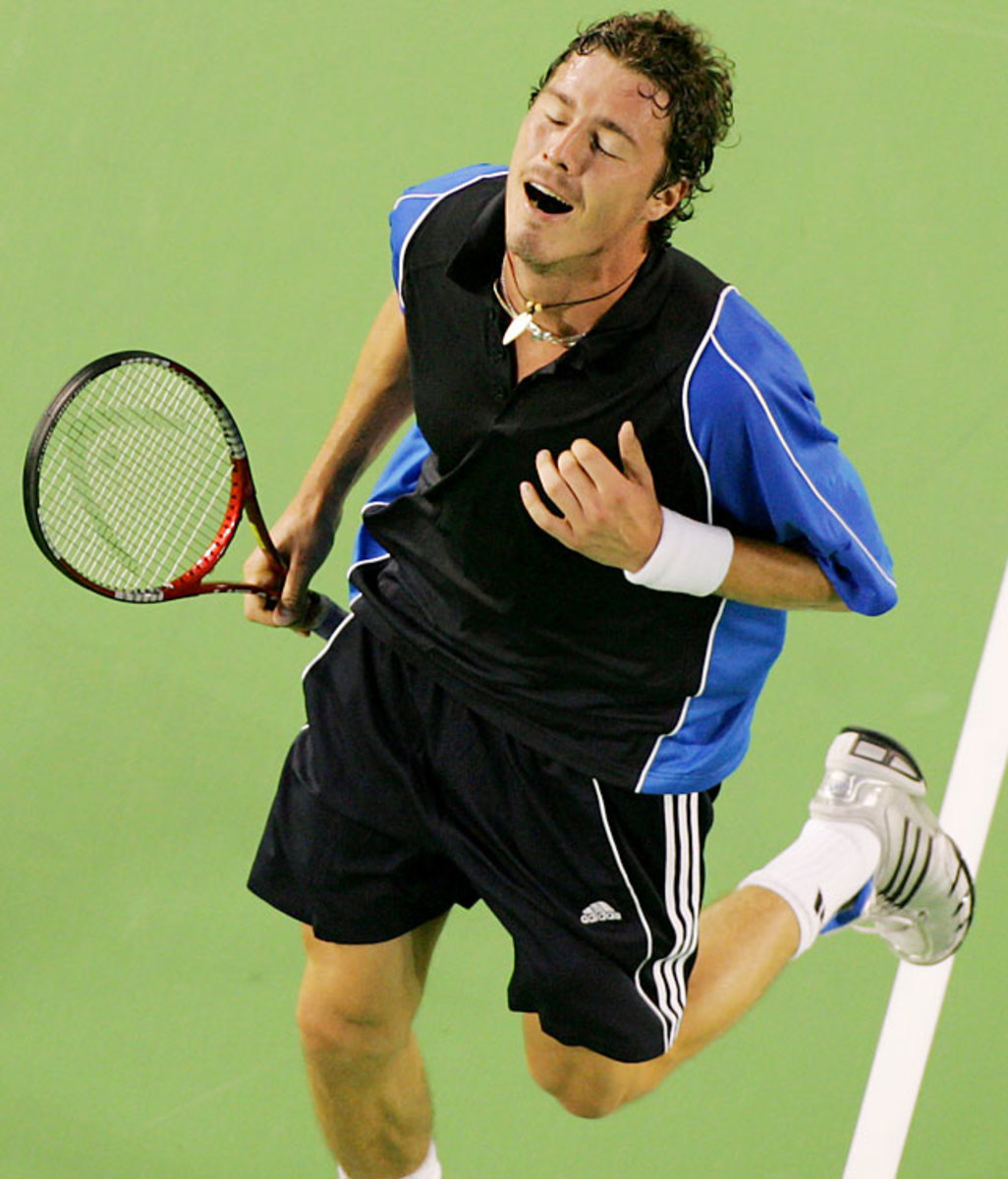
Marat Safin had one more ultimate Grand Slam run left in him in 2005, five years after his short-lived tenure as No. 1 in the world. A 5-7, 6-4, 5-7, 7-6 (8-6), 9-7 semifinal victory over Roger Federer was his biggest win in Melbourne. It came on his 25th birthday. The Russian saved a match point in the fourth-set tiebreak and outlasted the indominatable Federer, who needed trainers' help early in the fifth and fought off six match points in the final games. One of only four men to beat Federer in 2005, Safin went on to defeat Aussie Lleyton Hewitt in the final.
Roddick-El Aynaoui marathon
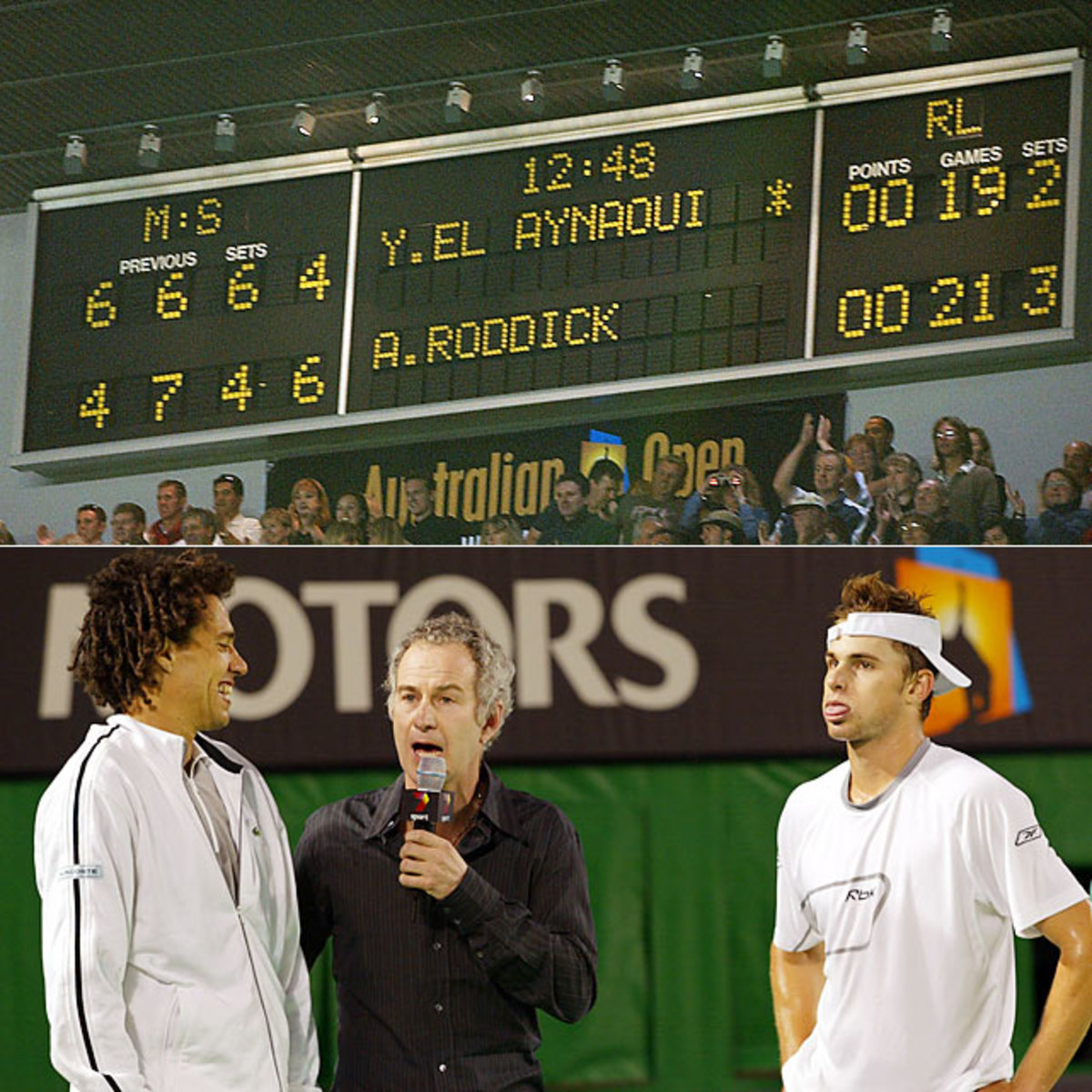
Recent years have brought an onslaught of marathon matches, but this memorable 2003 quarterfinal may have triggered the trend. Younes El Aynaoui, the affable Rockin' Moroccan, succumbed to young Andy Roddick 4-6, 7-6 (5), 4-6, 6-4, 21-19, in 4 hours, 59 minutes. The fifth set took up nearly half the match, at the time the longest match since tiebreakers were introduced at the Australian Open in 1971. Fernando Verdasco and Rafael Nadal's 2009 semifinal beat it by 15 minutes.
Hingis hits scene at 16
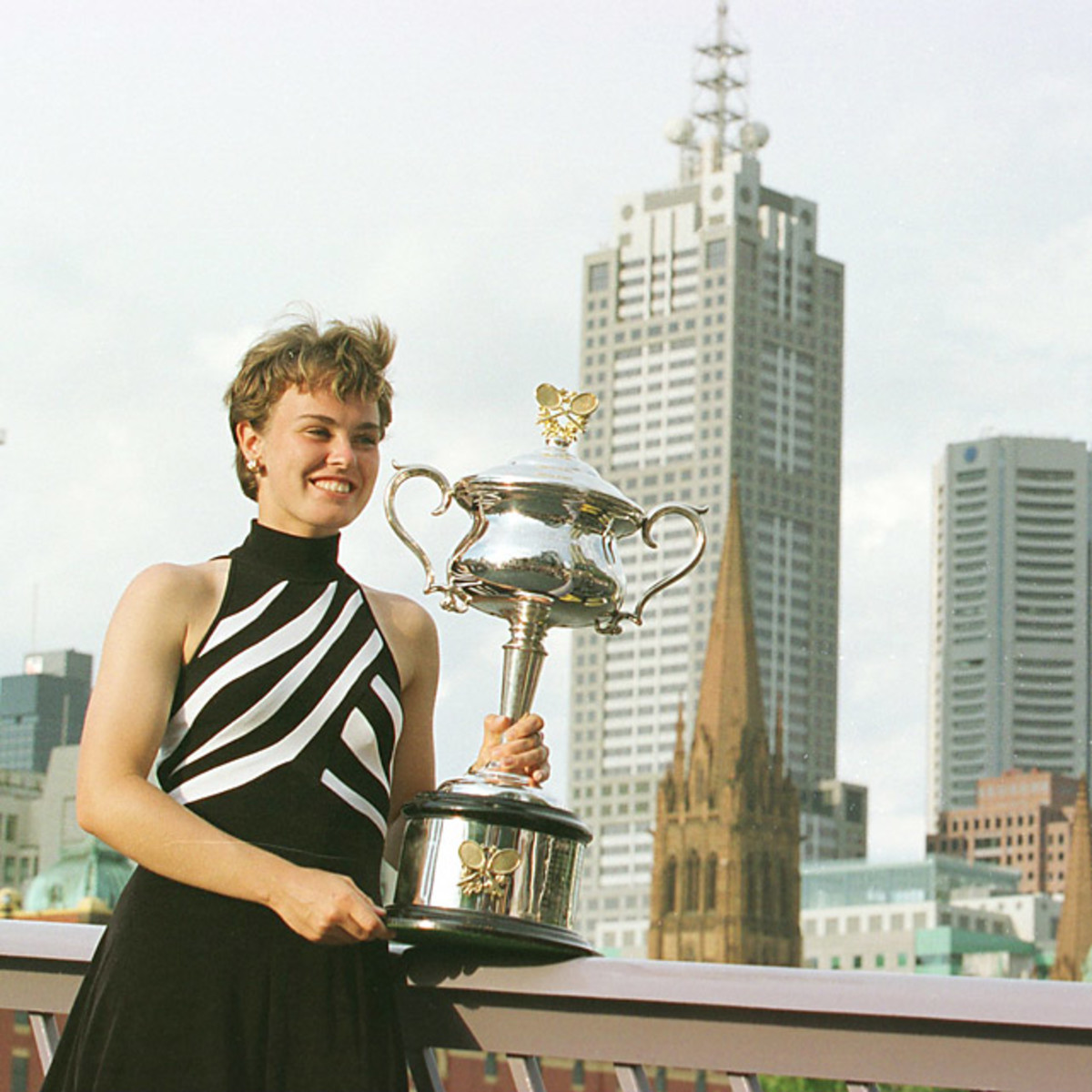
A new Martina began dominating the women's game in 1997, when 16-year-old Swiss prodigy Martina Hingis became the youngest Grand Slam champion. Hingis toppled Mary Pierce 6-2, 6-2 in the final, sparking one heck of a year. She reached No. 1 in the world in March and added Wimbledon and U.S. Open titles. Hingis successfully defended her championship in Melbourne in 1998 and 1999.
'We can do this tomorrow'
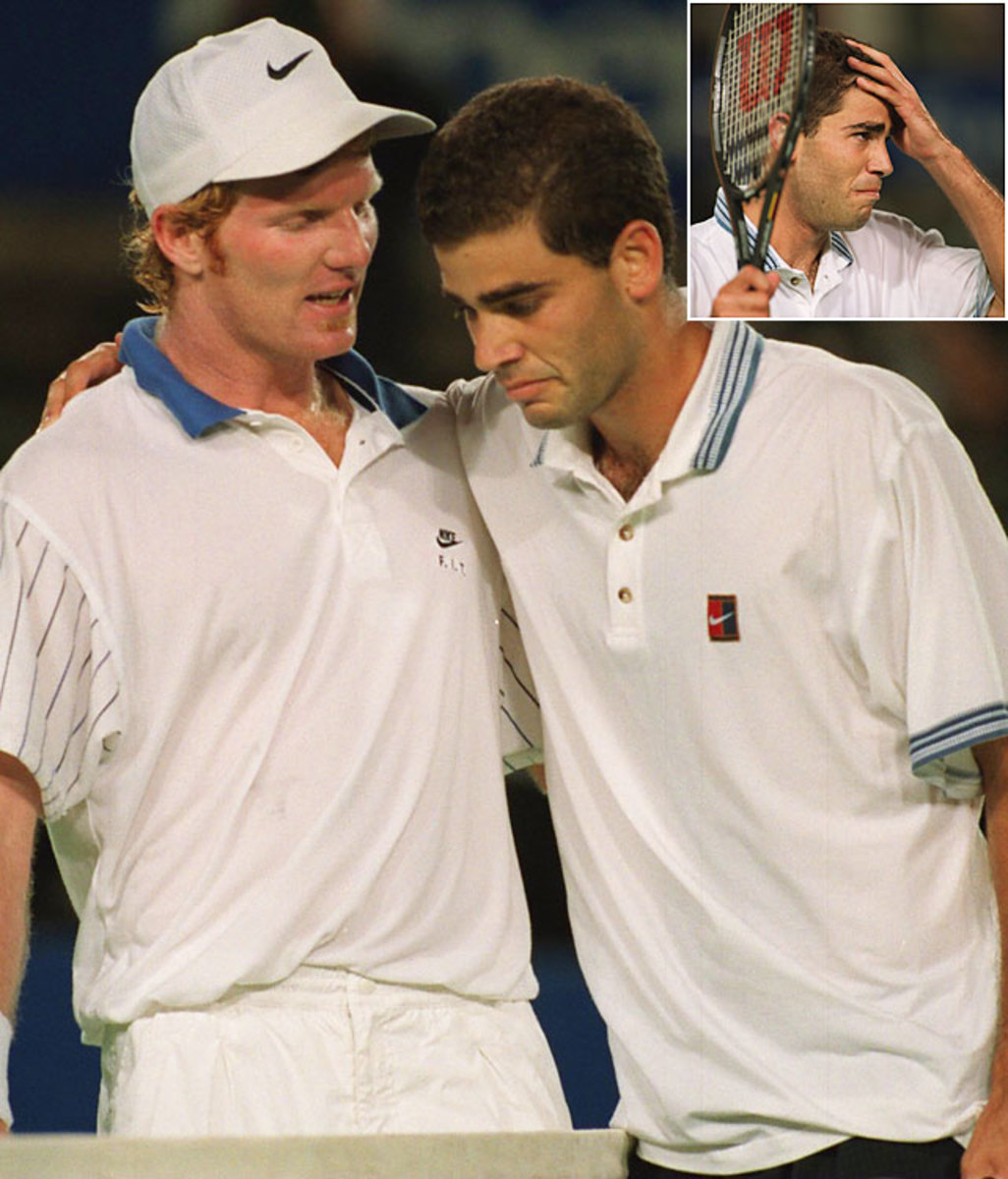
For Pete Sampras, it was about so much more than tennis. Sampras played the 1995 Australian Open quarterfinals burdened by his coach Tim Gullikson's diagnosis of brain cancer. Gullikson was given mere months to live. Emotion poured from Sampras after the fourth set, when he began weeping at the thought of Gullikson lying in a hospital bed. In the fifth, opponent Jim Courier noticed what was going on and memorably said, "You OK, Pete? We can do this tomorrow, you know." That remark spurred Sampras. He ultimately won 6-7 (4), 6-7 (3), 6-3, 6-4, 6-3 and lost to Andre Agassi in the finals.
Edberg outlasts Cash
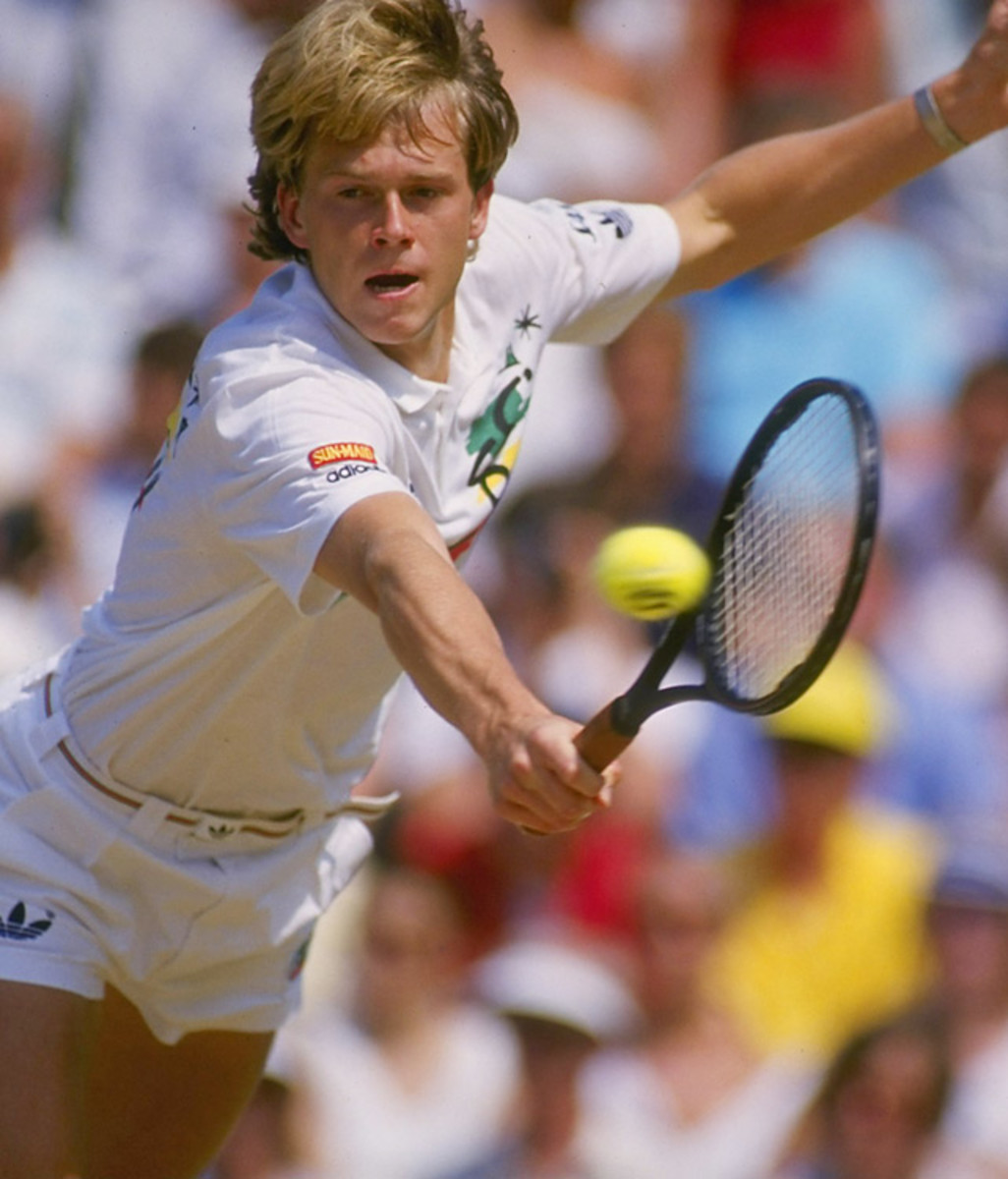
Stefan Edberg overcame Aussie Pat Cash in the last grass-court edition of the Australian Open, 6-3, 6-4, 3-6, 5-7, 6-3, and one of the more memorable finals. Down two sets to none, Cash showed incredible grit by coming back and taking a 5-1 lead in the fourth. Edberg regained momentum despite losing the fourth set and finished off Cash (but not before the Aussie staved off three match points). Edberg won his second straight Australian Open, while Cash lost the first of two straight Australian finals, failing to capture his home Grand Slam.
No. 212 stuns Newcombe

Part-time window cleaner Mark Edmondson became the lowest-ranked man to win a Grand Slam title at the 1976 Australian Open. He upset No. 1 Ken Rosewall in the semis and No. 2 John Newcombe in the final 6-7, 6-3, 7-6, 6-1. Edmondson, still the last Aussie man to win the Australian Open, didn't win another Grand Slam.
Rosewall wins at age 38
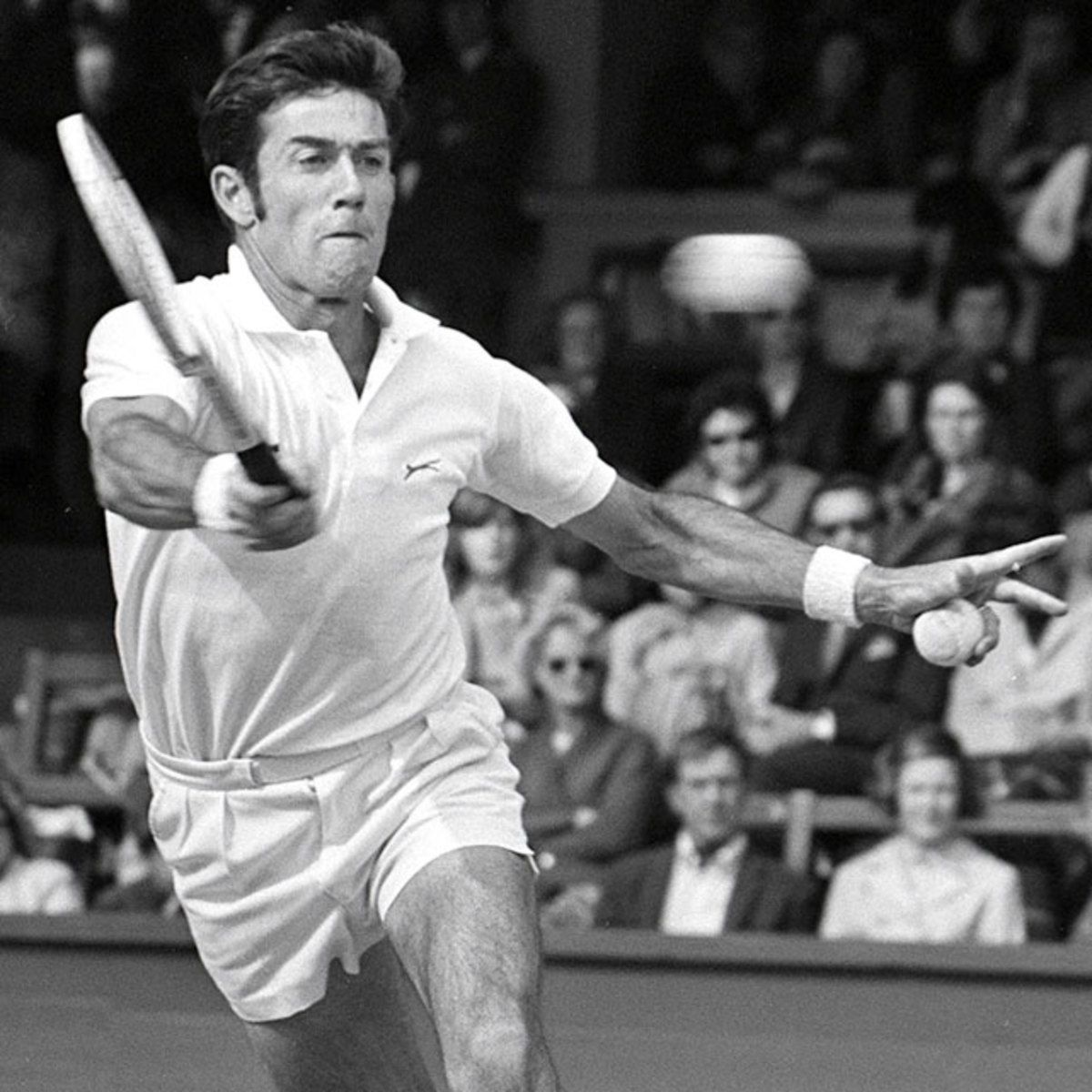
In 1953, 18-year-old Ken Rosewall became the youngest Australian Open champion. In 1972, 37-year-old Rosewall became the oldest Australian Open champion. He defeated Malcolm Anderson 7-6 (2), 6-3, 7-5 in an all-Aussie final. It was Rosewall's eighth and final Grand Slam title, though he did reach the Wimbledon final in 1974, a few months shy of 40.
Laver, Roche go 22-20

Rod Laver and Tony Roche played a draining 22-20 set ... and then had to play three more sets. This was before the tiebreak rule was introduced. Laver and Roche battled in intense heat in a 1969 semifinal. Laver took the second set and the match, 7-5, 22-20, 9-11, 1-6, 6-3, going on to win the tournament and the calendar Grand Slam, as well.
Court wins title, loses title
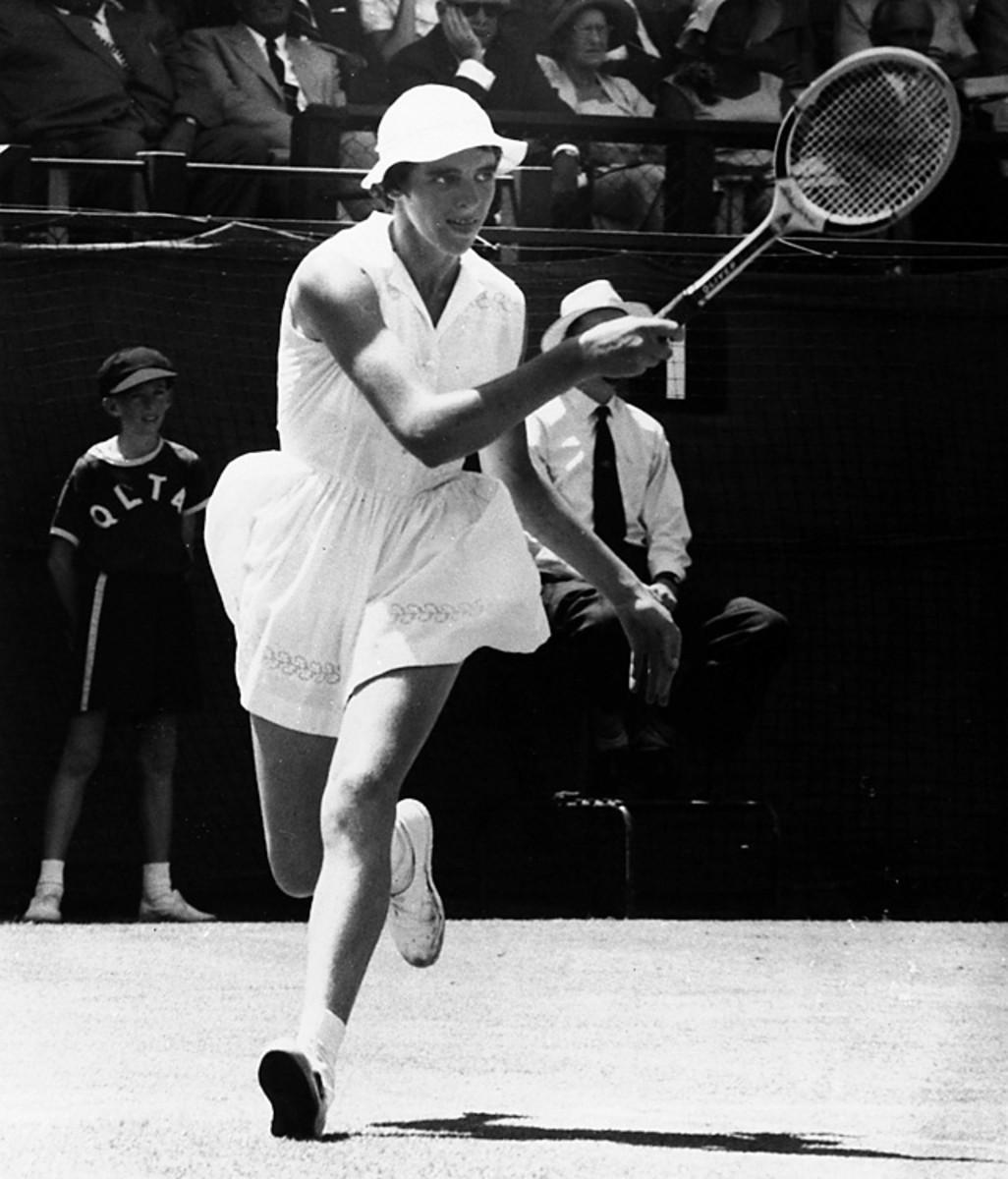
Margaret Court, 17, won the first of her 11 Australian Opens in 1960, when it was still called the Australian Championships. Court defeated Jan Lehane 7-5, 6-2 in the final. But Court was young enough to compete in the girls draw, where she lost her final to Lesley Turner.
